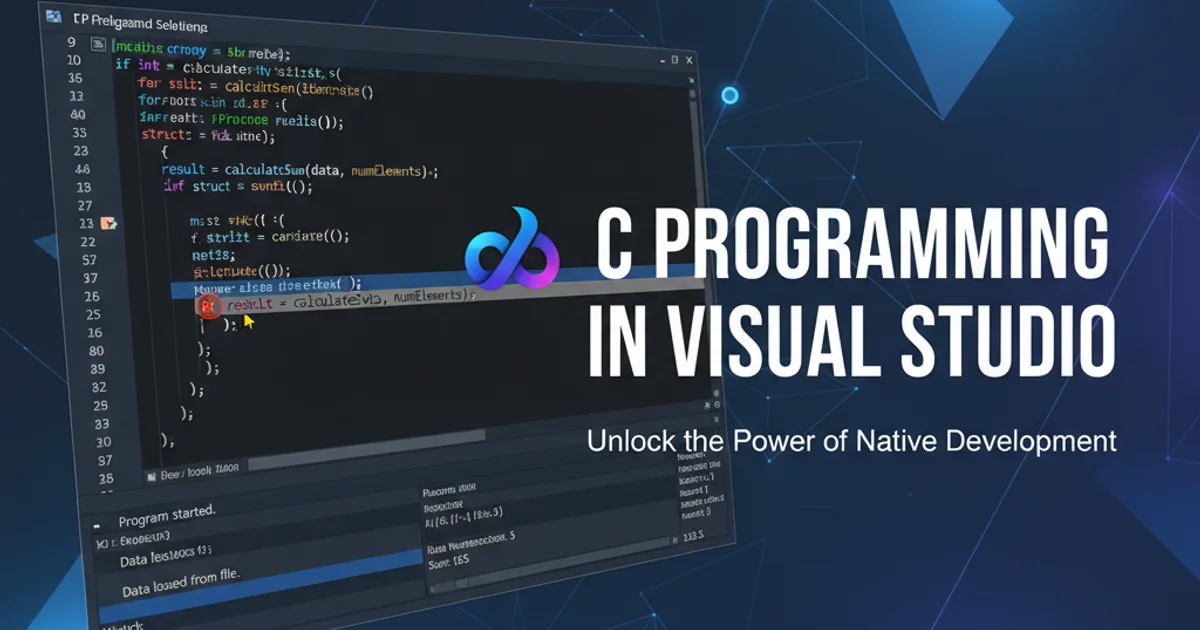Convert Unix Executable to Windows Executable
Categories:
Converting Unix Executables to Windows: A Practical Guide

Explore the challenges and solutions for running C++ Unix executables on Windows, focusing on cross-compilation and environment setup with Eclipse CDT.
Developing applications often involves targeting multiple operating systems. While scripting languages might offer inherent cross-platform capabilities, compiled languages like C++ produce binaries specific to the architecture and OS they were compiled on. This article addresses the common challenge of converting a Unix-compiled C++ executable to run on Windows. We'll delve into why direct conversion isn't feasible and explore the primary method: cross-compilation, specifically using Eclipse CDT.
Understanding Executable Incompatibility
A Unix executable (e.g., an ELF file on Linux) cannot directly run on Windows (which uses the PE format). This incompatibility stems from fundamental differences in operating system kernels, system call interfaces, binary formats, and linked libraries. When you compile a C++ program, the compiler translates your source code into machine-specific instructions and links it against OS-specific libraries. A program compiled for Unix expects Unix system calls and libraries, which are not present on Windows, and vice-versa.
flowchart TD
A[C++ Source Code] --> B{Unix Compiler/Linker}
B --> C[Unix Executable (ELF)]
C --X Cannot Run Directly X--> D[Windows OS]
A --> E{Windows Compiler/Linker}
E --> F[Windows Executable (PE)]
F --> DIllustrating the incompatibility between Unix and Windows executables.
The Solution: Cross-Compilation
The most robust solution is to recompile your C++ source code for the Windows target environment. This process is known as cross-compilation. You can either compile directly on a Windows machine with a Windows-native compiler (like MinGW-w64 or Visual C++) or use a cross-compiler on your Unix system that targets Windows. For C++ projects, especially those with external dependencies, setting up a proper cross-compilation environment is crucial.
Cross-Compiling with Eclipse CDT and MinGW-w64
Eclipse CDT (C/C++ Development Tooling) provides a powerful IDE for C++ development and can be configured for cross-compilation. This approach involves installing a MinGW-w64 toolchain on your Unix system, which includes a GCC compiler capable of producing Windows executables. The key is to configure Eclipse to use this cross-compiler instead of the native Unix compiler.
1. Install MinGW-w64 Cross-Compiler
On your Unix system (e.g., Ubuntu), install the MinGW-w64 toolchain. This typically involves a package like g++-mingw-w64.
2. Create a New C++ Project in Eclipse CDT
Open Eclipse CDT. Go to File > New > C/C++ Project. Select 'C++ Managed Build' and choose an appropriate project type (e.g., 'Empty Project').
3. Configure Project Properties for Cross-Compilation
Right-click your new project, go to Properties > C/C++ Build > Tool Chain Editor. Change the 'Current toolchain' to 'MinGW GCC' (or similar, depending on your installation). Then, navigate to C/C++ Build > Settings > Tool Settings. Under 'GCC C++ Compiler' and 'MinGW C++ Linker', ensure the command paths point to your MinGW-w64 cross-compiler executables (e.g., x86_64-w64-mingw32-g++).
4. Build the Project
Clean and build your project. Eclipse will now use the MinGW-w64 cross-compiler to produce a Windows-compatible executable (.exe file) in your project's Debug or Release folder.
# Example for installing MinGW-w64 on Ubuntu
sudo apt update
sudo apt install g++-mingw-w64
Installing the MinGW-w64 cross-compiler on a Debian-based Unix system.
fork(), sys/socket.h for certain network operations), these will not directly compile or run on Windows. You'll need to refactor such code to use Windows-equivalent APIs or cross-platform libraries.Considerations for Libraries and Dependencies
One of the biggest hurdles in cross-compilation is managing external libraries. If your Unix executable links against shared libraries (e.g., .so files), you'll need Windows-compatible versions of those libraries (e.g., .lib and .dll files) and ensure they are also compiled for the target Windows architecture. This often means building those libraries from source using your MinGW-w64 toolchain or finding pre-compiled Windows versions.
graph TD
A[Unix C++ Project] --> B{Source Code}
B --> C{Unix-Specific Libraries}
B --> D{Cross-Platform Libraries}
subgraph Cross-Compilation Process
E[MinGW-w64 Toolchain] --> F[Compile Source Code]
F --> G[Link with Windows-Compatible Libraries]
G --> H[Windows Executable (.exe)]
end
C --X Replace/Adapt X--> G
D --> GDependency management in cross-compilation.